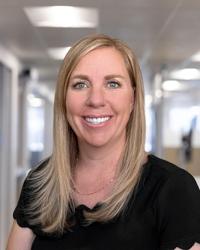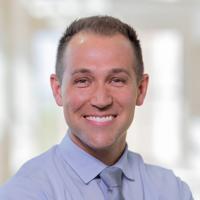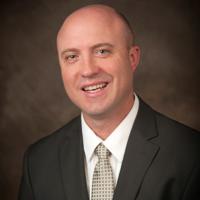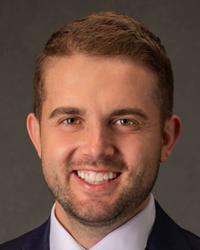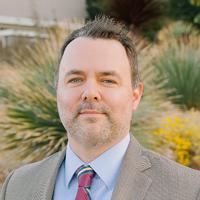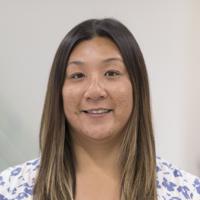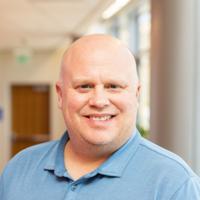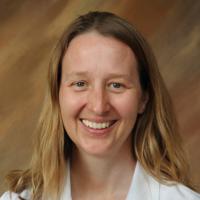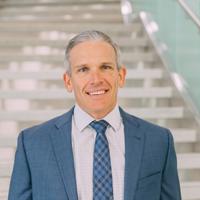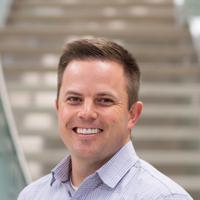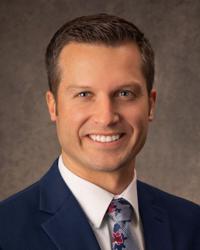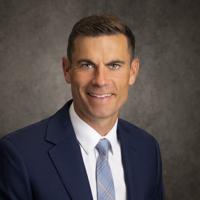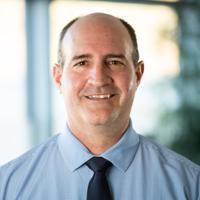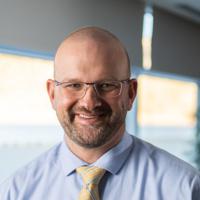This department offers
- Cancer care
Intermountain Cancer Center has assembled 11 disease-focused teams. These teams consist of physicians, nurses, advanced practitioners, nurse navigators, genetic counselors, and related staff. Your experience and care will be of the highest possible quality.
Our providers
You might be interested in
Women's health
Navigating scanxiety: Finding calm during breast cancer screening and treatment
Learn how to manage scanxiety — the stress and uncertainty around breast cancer screenings and results. Discover expert tips, calming strategies, and emotional support resources to help you feel more in control.
Cancer care
Genetic testing is eye-opening for Montana family with a history of cancer
Discover how one woman’s routine checkup led to a life-saving diagnosis of Lynch syndrome.
Cancer care
Breast cancer survivor finds quality care close to home
Julie Scholes had it all—love, health, and a job she adored. But in spring 2023, a post-workout chest pain and lump changed everything.
Cancer care
AML Leukemia: Sister's lifesaving match leads to remission
Discover the inspiring journey of Rebekah Louder, a single mother of four, who defied a devastating leukemia diagnosis with unwavering hope, faith, and the support of her family
Cancer care
Discover the convenience of at-home colon cancer testing
Understanding your risks and exploring your screening options are vital steps in preventing colon cancer
Cancer care
Explore your personal and family cancer history with high-risk prevention services
We help patients understand their risk for cancer, develop a personalized plan for surveillance and risk reduction, and ensure patients get appropriate care and support.
Cancer care
Julie’s Journey: Navigating breast cancer treatment with support of caregivers
Now two years since completing her chemotherapy and in remission, Julie’s story is a testament to the strength and resilience of women facing breast cancer.
Cancer care
How to prevent different types of skin cancer
Shining light on the different types of skin cancer, and how to prevent them.
Cancer care
Why are younger adults getting colon cancer?
Addressing the rising trend of earlier colon cancer diagnoses
New Technology Helps Keep Breast Cancer from Coming Back
With the help of new technology, doctors can find and treat the stray cancer cells that make cancer come back.
Understanding Thyroid Cancer in the Old and Young
Elder L. Tom Perry, a top-ranking leader of The Church of Jesus Christ of Latter-day Saints, passed away from thyroid cancer on Saturday, May 30, less than two months after he was diagnosed with the disease
Think you have cancer?
Because anyone can slap information about cancer on the internet, good judgement is key when searching online. Dr. Mark Ott, Chief Medical Director, Intermountain Medical Center, breaks down some good and not so good sources for information on cancer.
The 3 C's of Cancer Care
There are 3 main goals for treating cancer: cure, control, and comfort. When cancer is in the early stages, cure is often possible. When cancer has spread beyond where it started, the goal is to shrink a tumor and control cancer growth.
Spotting Pediatric Cancer: How to Know Whether Your Child Should be Seen
Adults have many ways to prevent or screen for cancers: wearing sunscreen, scheduling regular mammograms, or not smoking. But what about cancer in kids?
Skin Cancer: Preventative Steps You Can Take
Skin cancer is the most common cancer in the U.S., with more than a million new cases of skin cancer occurring each year, resulting in more than 10,000 deaths primarily from melanoma
A Patient's Journey Through Thyroid Cancer
It’s often easy to ignore symptoms like fatigue and simply chalk them up to our modern, harried lifestyles. But, it’s important to take stock in what your body is telling you and discuss symptoms with your primary care doctor when those vague feelings of something being “not quite right” come up.
How Does Skin Cancer Become More Than Skin Cancer?
Former President Jimmy Carter's announcement that he has melanoma made many people wonder: Is melanoma the same thing as skin cancer, and how does skin cancer become more than skin cancer?
Cancer care
Catch Prostate Cancer Early through Screening
One in seven men will be diagnosed with prostate cancer during his lifetime with 60 percent of those cases occurring in men age 65 or older. Prostate cancer is rare before age 40, and the average age at diagnosis is 66.
Balancing Life and Cancer Treatment
In relation to life’s various twists and turns, a cancer diagnosis can feel like a freefall. But once a person lands on his/her feet, they can begin learning how to balance treatment-related factors and life’s pleasures.
Are You at Risk for Breast Cancer?
Are you at risk for breast cancer? Take our breast cancer risk quiz today.
After a Year Battling Cancer, Teacher Shares Her Journey of Healing
After a year receiving cancer treatment at Logan Regional, teacher Ashlena Johnson says she wouldn't go anywhere else: "The entire experience was phenomenal.”
Advancing Cancer Treatment: Intermountain Leads the Way with Targeted, Personalized Therapies
The future of cancer treatment looks promising at Intermountain Healthcare. That’s because Intermountain’s physicians and researchers are using precision genomics to provide a personalized approach to testing, diagnosing and treating cancer.
From Singapore to
Primary Children’s Hospital – A Teens Battle with Childhood Cancer
Primary Children’s Hospital – A Teens Battle with Childhood Cancer
Addie Napierski felt a little foggy as she looked up at the hospital lights. “Oh yeah,” she thought, abruptly aware of where she was. Her mom, April, sat nearby, looking anxious and waiting for Addie to wake up enough to hear the news
A Lucky Fall - Duane L. Monette
The diagnosis was “carcinoma of unknown primary origin.” At his home in Utah, Monette visited Dr. Brian Tudor of Intermountain Healthcare’s Southwest Cancer Clinic in St. George.
A Better Way of Doing Prostate Screening
Prostate cancer is the leading type of cancer among Utah men, and Utah has one of the highest incidents of prostate cancer in the country. Addressing this issue is a priority, so how do we detect prostate cancer early and make sure patients have the best outcomes possible?
10 Ideas for Cancer Care Packages
When a loved one or friend is diagnosed with cancer, it’s never easy. It’s hard to know how to help or what to do. Here are 10 ways to lend support and love.
10 Skin Cancer Facts
What’s the best thing you can do to decrease your risk of skin cancer, especially in the summer? The number one thing is to protect your skin.
9 Tips to Prevent Skin Cancer
9 Tips to Prevent Skin Cancer
8 FAQS about the Breast Cancer Gene
Working with breast cancer patients is both challenging and incredibly rewarding. While watching my patients suffer can be tough, I am often inspired by their strength, resolve and selflessness.
Cancer care
Thanks to early detection and mammography, more women surviving breast cancer. One young mother tells how early detection saved her life and the life of her child.
Analey Miltenberger was 18 weeks pregnant with her first child when she was diagnosed with breast cancer.
Skin Cancer Basics
Skin cancer is the most common type of cancer in the United States. More than 2 million people were diagnosed with skin cancer in 2010. This number is larger than all other cancers combined, and the incidence is increasing rapidly.
Learn About Cancer Genomics
In case you missed it: latest advances in cancer research discussed at most recent Research Colloquium


